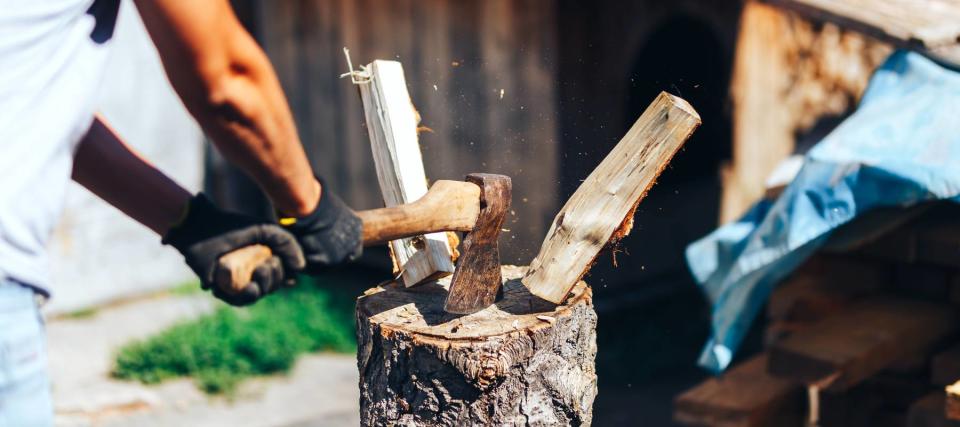'An economic divide that is widening': Almost one third of Americans earning $150,000 a year or more report living paycheck to paycheck — and many rely on credit cards to close the gap

It’s not just low-income Americans drowning under inflation and interest rates — some higher-income folks are feeling the strain on their wallets as well.
Data from a survey conducted in 2023 by personal finance software company Quicken revealed that 32% of Americans earning at least $150,000 a year are currently living paycheck to paycheck, while 36% of folks earning $50,000 to $150,000 and 55% of households earning less than that reported the same.
Don't miss
This Pennsylvania trio bought a $100K abandoned school and turned it into a 31-unit apartment building — how to invest in real estate without all the heavy lifting
Find out how to save up to $820 annually on car insurance and get the best rates possible
Take control of your finances in 2024: 5 money moves to start the new year off strong
"Our research shows an economic divide that is widening among Americans — there is a large group of hard-working people who are still struggling financially,” Eric Dunn, CEO of Quicken, said in a press release. While the usage of credit cards was alarming to Quicken's researchers, it was the reliance on credit that struck them as most concerning.
“I’m troubled by the compounding problems facing this group — many of them are living paycheck to paycheck and relying on credit cards they may not be able to afford.”
Higher-income Americans relying on credit cards now more than ever
Credit card usage has been escalating amid high inflation.
In fact, according to the New York Fed, credit card balances topped $1.08 trillion in the third quarter of 2023.
With some Americans waiting for their next payday to afford everyday expenses, credit cards may be the only tool left at their disposal. But relying on them too heavily comes at a cost.
The Quicken survey found that 46% of higher-income groups are more dependent on their credit cards than they’ve ever been — compared to just 40% of middle- and 39% of lower-income groups. About a third of folks earning $150,000 a year or more also admitted they weren’t going to be able to pay off their balances before 2023 came to an end.
If you’re unable to pay off your credit card bill in full and on time each month, you risk accumulating a massive pile of interest that becomes more difficult to pay off over time. Plus, you’re hurting your credit score, which lenders and other companies look at when you apply for things like loans or insurance.
Here’s how to fix up your finances and get out of this cycle ASAP.
Read more: Thanks to Jeff Bezos, you can now cash in on prime real estate — without the headache of being a landlord. Here's how
Build a budget
It may be time to revisit your budget — or make one, if you haven’t already.
Make a list of your income and all your fixed expenses and figure out how much you can set aside for things like groceries, dining out and recreational activities, as well as your savings for retirement and emergencies.
Keep track of how much you’re spending each month. Consider using the cash-stuffing technique to allocate funds to each of your spending categories — and put whatever’s leftover after each month into your savings.
Pay down your debts
While you’re making a budget, make sure you’re factoring in all of your monthly bills, including your credit cards.
Consider setting up automatic payments on your cards to make sure you’re never missing any deadlines. Or, if you’re struggling to afford payments in the first place, figure out a strategy to pay off a few of your balances at a time.
For example, you could use the avalanche method to start with your highest-interest debt and work your way down (so that you’re paying less interest over time).
Create an emergency fund
The best way to avoid getting caught up in the paycheck-to-paycheck lifestyle is to prepare for the unexpected.
Whether you’ve just lost your job, are dealing with some pricey car repairs or grappling with a big medical bill, it’s important to have savings set aside to provide some cushioning so you’re not waiting on your next paycheck to cover the expense.
It’s generally recommended to put three to six months’ worth of expenses into an emergency fund.
You can sock the cash away into a high-interest savings account, which can help to build your fund, but keep in mind any penalties for early withdrawals.
What to read next
The US dollar has lost 87% of its purchasing power since 1971 — invest in this stable asset before you lose your retirement fund
Rising prices are throwing off Americans' retirement plans — here’s how to get your savings back on track
Worried about the economy? Here are the best shock-proof assets for your portfolio. (They’re all outside of the stock market.)
This article provides information only and should not be construed as advice. It is provided without warranty of any kind.
